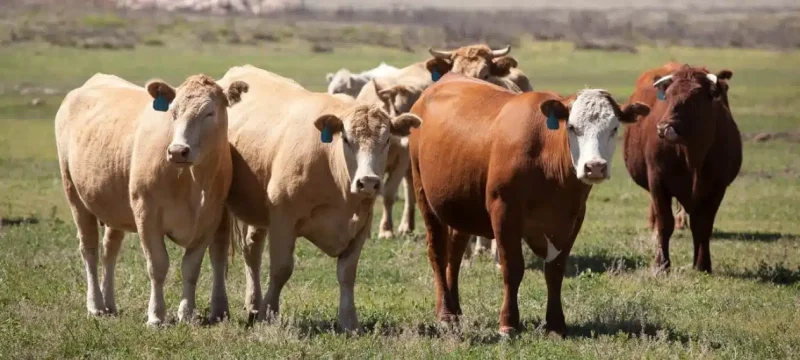Brazil has received approval from Pakistan to export live cattle, as well as embryos and semen of cows, marking a significant development in livestock trade between the two countries. The approval extends to the export of young tilapia fish to the Philippines as well. Brazil’s Agriculture Ministry announced this milestone, highlighting the positive impact it will have on its livestock exports. In 2023, Brazil exported nearly $489 million in live cattle, a remarkable 154% increase from the previous year.
The approval from Pakistan comes after Brazil submitted proposals for amendments in the Import Policy Order-2022, aligning its regulations with the guidelines set by the World Organization of Animal Health (WOAH) on cattle trade. This move reflects the commitment of both countries to adhere to international standards in the trade of live animals and animal products.
Also Read: Devastating Sutlej River Flood Leaves Thousands Displaced and Villages in Ruins
Brazil’s live cattle exports have been on an upward trajectory, and the approval to export to Pakistan opens up new opportunities for growth. Last year’s total exports of nearly $340 billion, with $106 billion going to China, position Brazil as a major player in global trade. The diverse range of exported products includes fibers, textiles, and now, live cattle, contributing significantly to Brazil’s economic vitality.
Pakistan, on the other hand, stands to benefit from this agreement by diversifying its imports from Brazil. While its imports from Brazil in 2023 amounted to $298 million, the inclusion of live cattle and related products broadens the spectrum of trade between the two nations. The import of live cattle is a strategic move that can positively impact Pakistan’s agriculture sector and contribute to the country’s food security.
Livestock trade between countries involves complex negotiations and adherence to international standards to ensure the health and safety of the animals. The approval from Pakistan reflects confidence in Brazil’s livestock industry and its compliance with global regulations. The development is likely to foster stronger economic ties between the two nations and potentially lead to further collaborations in the agricultural sector.
The approval to export live cattle is a crucial step in strengthening Brazil’s position in the global livestock market. Live cattle exports have seen substantial growth, and the demand for quality livestock presents an opportunity for Brazilian farmers and exporters. The collaboration between Brazil and Pakistan in this sector aligns with the broader trend of expanding international trade partnerships.
In addition to live cattle, Brazil’s approval to export embryos and semen of cows to Pakistan adds another dimension to the trade relationship. This reflects the countries’ recognition of the importance of genetic resources in livestock breeding programs. Brazil, known for its advanced agricultural practices, can contribute valuable genetic material to enhance Pakistan’s livestock sector.
The approval for Brazil to export young tilapia fish to the Philippines underscores the diversification of trade avenues. The Philippines, with its substantial imports totaling $918 million from Brazil in 2023, can now benefit from Brazil’s expertise in aquaculture. This trade in fish products complements the livestock trade, offering a comprehensive approach to agricultural collaboration.
While the economic impact of these approvals is significant, it also highlights the importance of aligning trade practices with global standards. The amendments in the Import Policy Order-2022 by Pakistan demonstrate a commitment to upholding international guidelines for the welfare and health of animals involved in cross-border trade.
In conclusion, Brazil’s approval to export live cattle, embryos, semen, and tilapia fish to Pakistan and the Philippines signifies a landmark development in international trade. The collaboration reflects the mutual benefits that can arise from strategic partnerships in the agricultural and livestock sectors. As Brazil continues to strengthen its position as a global trade leader, these agreements contribute to the country’s economic resilience and open doors for further cooperation with nations seeking quality agricultural products.









